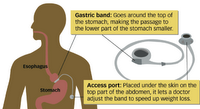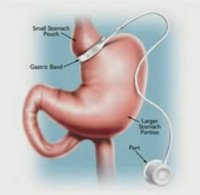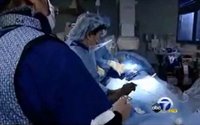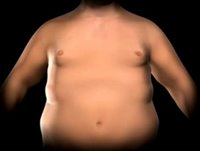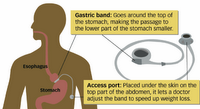Gastric bypass surgery patient story: The road to recovery continues
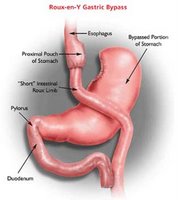
Columbia, TN
here are very few times when I am driven to tears.
However, sometimes there are instances that a person can’t control their emotions.
That happened to me this morning when my little brother Ben called to tell me that Wednesday was a special anniversary.
He reminded me that it has been exactly one year since he underwent gastric bypass surgery.
As I chronicled in a column last year, Ben has struggled with his weight for many years before finally reaching his breaking point.
Ben weighed in at a debilitating 452 pounds and was literally struggling with nearly every breath.
After trying and failing with several different weight loss methods, Ben made the difficult decision to undergo gastric bypass surgery.
The results have been nothing short of amazing.
Ben’s latest weigh-in had him coming in at a svelte 260 pounds. That means that he has lost 192 pounds since that momentous day last August and I couldn’t be more proud.
The before and after pictures of him are so startling that I was glad I was sitting when I first saw them.
There’s no way to accurately describe the difference in his appearance that has taken place in just a year.
In addition to his physical appearance, Ben’s mental health has also improved. He realizes that he has a new lease on life and expects to take full advantage of it. As Ben put it, he was once dying from obesity, depressed and feeling hopeless, but now he is full of joy with renewed hope.
That’s what this crazy world is all about, isn’t it?
People somehow finding the strength to battle through adversity to better themselves.
With the high stress, non-stop lives that most of us lead, sometimes it’s hard to keep things in the proper perspective.
Ben’s struggle has helped me to do just that.
He is an inspiration to me and a constant reminder to not take for granted those things which I cherish in my life like my beautiful wife and son.
In a world where sometimes we put an unhealthy emphasis on sports, it’s good to be reminded there are also other things to be concerned about.
Don’t get me wrong, I’m still sports-crazed.
Trust me — new perspective notwithstanding — I will be on the edge of my seat Sunday afternoon watching my Kentucky Wildcats battle loathsome Louisville.
But while my love of sports will never lessen, I’m going to try and not let it dominate who I am.
Sports are great and serve as a wonderful diversion from the struggles that so many people face.
However, sports are just that, a diversion.
I truly hope that is the lesson I can take from Ben’s journey that only has 60 pounds remaining.
I know 60 pounds seems like a lot, but it is nothing but a final bump on Ben’s remarkable road to recovery.
Labels: bariatric surgery, gastric bypass surgery, patient stories
